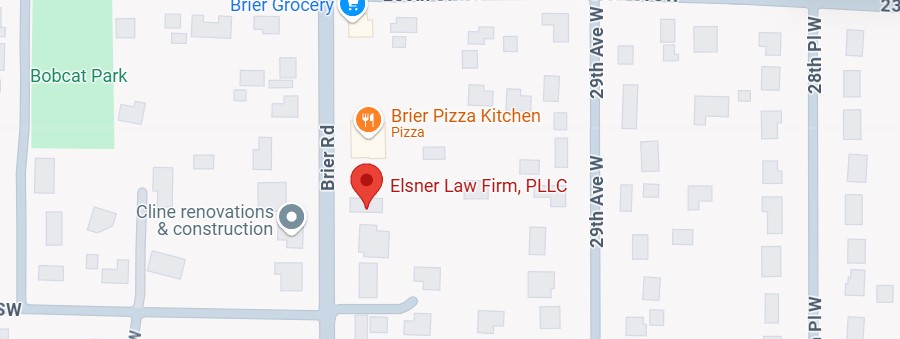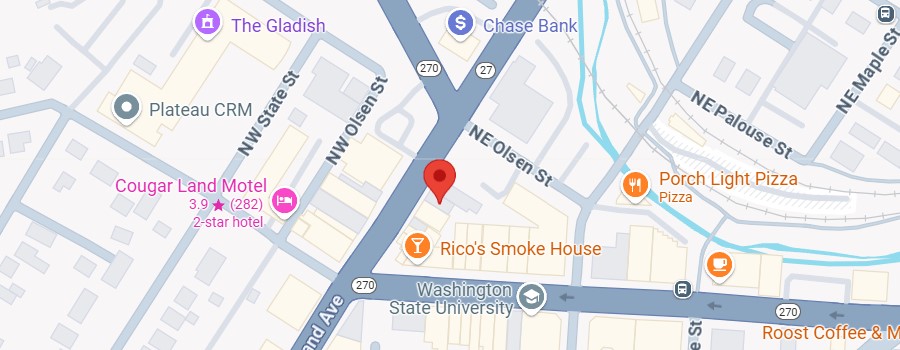Car accidents are a common occurrence on the roads, and rear-end collisions are among the most frequent types of automobile accidents that result in personal injury. Distracted drivers are a leading cause of rear end accidents, often due to texting or other inattention. In a rear-end collision, the car that is hit from behind is often left with significant damage. For more details on vehicle damage, see our guide on how rear-end collisions damage your car. Aggressive driver behavior, such as tailgating, and road rage can also increase the risk of a rear end accident. The actions of the other driver, such as sudden stops or erratic driving, may contribute to rear end accidents as well. Poor weather and road conditions can further impact vehicle handling, making it harder to maintain control and avoid a rear end accident. One of the questions that arise after such an accident is whether the car is considered totaled. In this blog post, we will explore this legal topic and provide answers to some of the frequently asked questions.
Understanding Rear End Collisions
Rear end collisions are among the most common types of car accidents, occurring when one vehicle strikes the back of another. These collisions often happen in heavy traffic, at stoplights, or during sudden braking. A rear end collision occurs for many reasons, with distracted driving—such as texting or not paying attention to the road—being a leading cause. Other contributing factors include poor weather conditions that reduce visibility or road grip, and aggressive driving behaviors like tailgating or speeding. In most cases, the driver of the rear vehicle is considered at fault, but determining fault can sometimes be complex, especially if the front vehicle’s brake lights were not working or if there were multiple vehicles involved. Investigating the accident scene, reviewing witness statements, and analyzing vehicle damage are all important steps in establishing who is responsible. Regardless of the cause, rear end collisions can result in significant vehicle damage and injuries to drivers and passengers.
Types of Damage from Collisions
The damage resulting from rear end collisions can range from minor dents to severe destruction, depending on the speed and force of the crash. Common types of damage include crushed bumpers, a damaged trunk, and even harm to the vehicle’s frame. In more serious rear end crashes, the impact can cause hidden damage to the vehicle’s alignment or suspension, which may not be immediately visible but can greatly affect the car’s safety and performance. Injuries to occupants, such as whiplash, back injuries, or head trauma, are also frequent in these types of collisions. When the repair costs exceed the vehicle’s actual cash value, insurance companies may declare the car a total loss. It’s important to remember that even if a car looks repairable at first glance, hidden damage from a rear end crash can lead to higher repair costs and a lower vehicle value.
End Collision Damage Inspection and Repair
After experiencing a rear end collision, it’s crucial to have your vehicle thoroughly inspected by a qualified mechanic or auto body technician. Even if the damage appears minor, a professional inspection can uncover hidden damage to the vehicle’s frame, suspension, or other essential systems. The repair process may involve replacing or repairing the bumper, straightening the frame, realigning the suspension, and addressing any issues with the damaged trunk. In some cases, the vehicle may need to be towed to a repair shop, and the owner might need to arrange for alternative transportation while repairs are underway. Promptly repairing all damage, including less obvious issues, helps maintain the vehicle’s value and ensures it remains safe to drive after an end collision.
What is a Totaled Car?
A totaled car is a vehicle that has been damaged to the extent that the cost of repairing it exceeds the car’s value. In other words, if the cost of repairing the car is more than what the car is worth, then the car is considered totaled.
Older cars are more likely to be totaled because their market value is lower, so repair costs can easily exceed the car’s value. Even newer cars can be considered totaled if they sustain severe damage. Insurance companies assess different cars by comparing repair costs to each car’s current market value when determining if a vehicle is a total loss.
When a car is totaled, the insurance company will typically pay the owner the actual cash value of the car, which is the fair market value of the vehicle immediately prior to the loss.
What is a Settlement?
A settlement is an agreement between the parties involved in a legal dispute to resolve the matter without going to trial. In the context of a car accident, a settlement is an agreement between the injured party and the insurance company to compensate the injured party for their losses. The settlement amount is typically based on the extent of the injuries, the cost of medical treatment, medical bills, medical costs, and the value of the damaged property.
Dealing with insurance companies after an accident is crucial to ensure that all medical costs and medical bills are fully covered as part of your compensation.
Medical Expenses and Compensation
Rear end collisions can lead to a wide range of medical expenses, from emergency room visits and surgeries to ongoing physical therapy and rehabilitation. Victims may also face additional costs such as lost wages due to time off work, property damage, and emotional trauma resulting from the accident. To seek compensation for these losses, it’s important to work with a lawyer experienced in car accident cases who can help you navigate the process of negotiating with insurance companies. A free case review can help you understand the strengths of your claim and what compensation you may be entitled to. The extent and severity of your injuries, as well as the overall impact of the accident, will greatly affect the amount of compensation you can receive. Having legal guidance can make a significant difference in negotiating a fair settlement for your medical treatment, lost wages, and other damages.
How Does the Settlement Process Work?
After a car accident, the first step is to report the accident to the police and your insurance company or the insurance company of the vehicle that hit you. If you do not have collision coverage, then you will have no choice but to go with the at-fault party’s insurance. The insurance company will then send an adjuster to assess the damage to your car and determine whether it is totaled. During this process, repair estimates are used to evaluate the total cost of fixing your vehicle, and if these repair estimates exceed a certain percentage of the car’s value, the car may be considered a total loss. If the car is deemed totaled, the insurance company will offer you a settlement amount based on the actual cash value of the car.
If you accept the settlement offer, you will sign a release form that waives your right to pursue any further legal action against the insurance company. If you do not accept the settlement offer, you may choose to negotiate with the insurance company or file a lawsuit to seek compensation for your losses.
What Are Some Relevant Laws for Washington State?
In Washington State, the law requires insurance companies to pay the actual cash value of a totaled car. However, the law does not define what constitutes a totaled car. Instead, the determination of whether a car is totaled is left to the discretion of the insurance company.
In the case of Kuehn v. State Farm Mutual Automobile Insurance Co., the Washington State Supreme Court held that an insurance company must pay the actual cash value of a totaled car, even if the car could be repaired for less than the value of the car. The court also held that the insurance company must consider the cost of repairing the car when determining the actual cash value.
What Are the Value Amounts that Determine if a Car is Totaled?
Let’s consider two examples to illustrate how the process works.
John’s car is rear-ended by another car, and the damage to his car is estimated to be $10,000. The insurance company determines that the actual cash value of John’s car before the accident was $8,000. Since the cost of repairing the car exceeds its value, the insurance company deems the car totaled and offers John a settlement of $8,000.
Sarah’s car is rear-ended by another car, and the damage to her car is estimated to be $1,000. The insurance company determines that the actual cash value of Sarah’s car before the accident was $7,000. Since the cost of repairing the car is less than its value, the insurance company deems the car repairable and offers Sarah a settlement of $1,000 to cover the cost of repairs.
Note: the insurance company will use the VIN number to determine the accessories that are on the vehicle. If you installed after-market parts such as special wheels, a tow package, etc. and you have receipts for those items, the insurance company may adjust the value of the vehicle. Damage to the vehicle’s frame or issues with the vehicle’s alignment can significantly affect whether a car is considered totaled, as these can impact safety and repair feasibility. Damage to components like the steering wheel may also be considered in the overall assessment. Unfortunately, however, things like new brakes aren’t generally considered in the valuation because they are considered to be maintenance items.
Do I Need a Lawyer?
If you are involved in a rear-end collision and your car is deemed totaled, a lawyer can help you navigate the process of negotiating a settlement with the insurance company. An experienced personal injury lawyer can also help you determine whether the settlement offer is fair and reasonable based on the actual cash value of your car.
If you choose to file a lawsuit, a skilled lawyer can help you gather evidence to support your case and represent you in court. A lawyer can also help you understand your legal rights and options and provide guidance on the best course of action to take. If you are involved in a rear-end collision, contact Elsner Law Firm at 206-447-1425 for a free case evaluation.
Conclusion
Rear end collisions are a frequent type of car accident that can cause significant damage and injuries. Understanding the common causes—such as distracted driving and poor weather conditions—can help drivers take steps to avoid these accidents. If you are involved in a rear end collision, it’s essential to seek immediate medical attention and consult with a lawyer to explore your legal options. A totaled car can create a major financial burden, but with experienced legal representation, you can negotiate a fair settlement and seek the compensation you deserve. By staying informed and proactive, drivers can better protect themselves and their rights after a collision.





